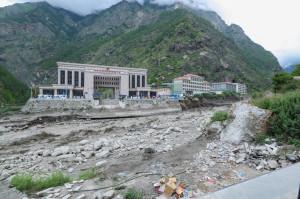Money
Govt explores sanctions-hit Qatar to export agri produces
Government officials have been discussing the possibility of exploiting the export opportunities presented by the embargo against Qatar by its neighbours.
Government officials have been discussing the possibility of exploiting the export opportunities presented by the embargo against Qatar by its neighbours.
Nepal can export fresh vegetables, dairy products and spices to the Gulf country which is having a hard time obtaining supplies due to economic sanctions, said officials.
On Monday, a discussion was held at the National Planning Commission on exploring short- and medium-term business opportunities with Qatar by sending fresh vegetables, dairy products and spices like ginger and large cardamom, said Shankar Sapkota, deputy spokesperson for the Ministry of Agricultural Development.
On June 5, Qatar’s Gulf Cooperation Council neighbours Saudi Arabia, the United Arab Emirates and Bahrain blocked access to Doha by air and land. Qatar, which imports most of its food, is looking for new vegetable sources following the imposition of the blockade.
The government started discussing the issue with the private sector after Qatar asked Nepal if it could meet its vegetable and spices requirements for the short, medium and long terms, government officials said.
“There is huge demand for fresh vegetables, dairy items and spices in Qatar. Nepal can cash in on the opportunity,” he said, adding that Nepali produces could get better than expected rates. “We can establish a long-term agro business relationship with Qatar too.”
Most agro products like large cardamom, coffee and tea have been organic certified, and they can be exported without hassles, Sapkota said.
Likewise, Nepal can produce organic vegetables that can fetch better prices in Qatar. The ministry has been holding talks with private traders and producers whether they can meet some of the demand.
Demand for vegetables in Qatar is so high that it cannot be met by small shipments. It is an opportunity to grow more organic vegetables as a high rate market is assured, officials said.
According to Sapkota, discussions are also being held whether it would be cheaper to ship vegetables and spices by air or sea. India and Pakistan have been cashing in on the opportunity by supplying huge quantities of foods, particularly fresh vegetables, to Qatar.
Nepal’s vegetable export potential largely remains untapped due to lack of harmonization between Nepali and global food quality standards, according to a study report of the South Asia Watch on Trade, Economics and Environment (Sawtee).
The report said that both the public and private sectors had not made serious efforts to promote Nepal’s products globally.
The Economic Survey 2016-17 shows that Nepal’s vegetable output swelled 9 percent to 4.16 million tonnes in the last fiscal year. The study shows that the country produces 13.73 tonnes of vegetables per hectare.
The growth rate of high-value crops and exportable items like ginger and large cardamom has increased by 9.25 percent and 5.66 percent respectively. The country produced 289,952 tonnes of ginger and 12,847 tonnes of large cardamom in the last fiscal year.




 31.26°C Kathmandu
31.26°C Kathmandu













